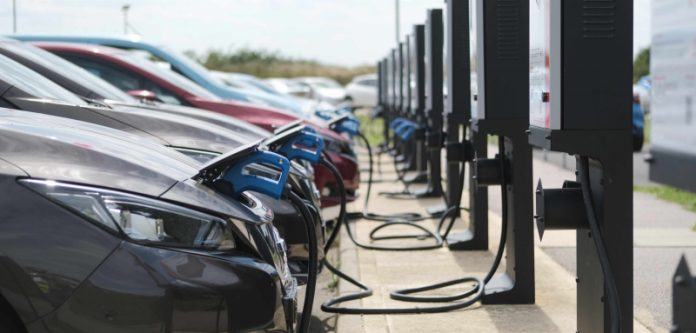WesBank, one of South Africa’s biggest banks, says the transition to New Energy Vehicles (NEVs) will go beyond replacing internal combustion engines (ICE) with new technologies but will also be crucial to reaching the global goal of carbon neutrality by 2050.
WesBank, RMB and FNB, all divisions of FirstRand, hosted a thought leadership roundtable with industry experts and key government policymakers to address the key challenges facing the transition to NEVs. Although he did not attend the conference, Minister of Trade, Industry, and Competition Ebrahim Patel announced that his department will finalise its EV strategy for the country by the end of the current financial year, which ends in March 2024.
“RMB encourages public-private collaboration to enable the transition to NEVs and, in so doing, to positively impact on the future of South Africa’s automotive industry,” said Nana Phiri, Head of Corporate Client Segment RMB.
“We are encouraged by the government’s willingness to promulgate regulation and create a framework within which our domestic, export-led automotive sector can secure investment and ensure the continued viability of the automotive sector in South Africa.”
“RMB is committed to funding sustainable projects that will fuel the NEV supply chain and enable reliable and efficient national infrastructure to support South Africa’s NEV footprint.”
WesBank CEO Ghana Msibi said that the company acknowledged that the shift towards decarbonisation was not solely linked to vehicle finance or finance in general.
“We are committed to contributing to a sustainable future beyond our core business operations,” Msibi said.
Moreover, he said that South Africa has the opportunity to lead the continent regarding climate mitigation, given the country’s natural resources, such as coal, natural gas, wind, and solar power.
WesBank said that the nation’s automotive industry is one of the biggest in Africa and is a major contributor to the domestic economy, meaning it needs to quickly and successfully transition to NEVs.
Despite Africa having the mineral needed for battery electric vehicles (BEVs), the continent currently only has a small share in global vehicle manufacturing. Furthermore, Africa’s demand for vehicles is set to grow threefold in the next 10 years, which presents a major opportunity for all those involved.
WesBank stressed that NEVs face several challenges in achieving wider acceptance among South African consumers, including constraints on product availability, a lack of awareness around range anxiety and the cost of ownership, questions over the reliability of electricity supply, and a limited grasp on the technology.
“The lack of education among customers on the benefits of NEVs, particularly BEVs, remains a significant challenge for all stakeholders. Another primary obstacle to wider adoption of NEVs in South Africa has been the significant initial investment required to establish a reliable and efficient national charging infrastructure,” Msibi said.
“While we see noteworthy growth in hybrids being financed, the sale of pure electric vehicles remains slow. The hurdle we face in finalising policies and regulations pertaining to the long-term future and sustainability of the South African automotive industry is an imperative one to overcome, to enable us to make decisions with confidence and kickstart progress.”




